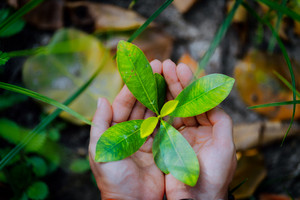Are you ready to reduce your waste and live a more sustainable life? If so, then it’s time to learn how to live a zero-waste lifestyle. In this blog post, we will cover everything from reducing waste at home to composting and even making your own natural cleaners and beauty products. Let’s get started!
Introduction to Zero-Waste Living
Zero-waste living is a lifestyle choice that involves minimizing the amount of trash you produce by reducing, reusing, recycling, and composting as much as possible. The goal is to create no waste whatsoever, but even small changes can make a big impact on the environment. By choosing to live a zero-waste lifestyle, you are taking an important step towards protecting our planet for future generations.
Tips for Reducing Waste at Home
One of the easiest ways to reduce waste at home is to use reusable containers instead of disposable ones. For example, instead of using plastic bags or sandwich baggies, bring your lunch in a reusable container like a mason jar or Tupperware. You can also switch to cloth napkins instead of paper ones, and invest in a refillable water bottle rather than buying single-use plastic water bottles. Another great tip is to buy items in bulk, which reduces packaging waste while also saving money.
How to Shop Sustainably and Avoid Single-Use Plastics
When shopping, try to choose products with minimal packaging or packaging made from eco-friendly materials such as glass or metal. Look for stores that offer package-free options or bring your own jars and containers to fill up with goods. It’s also important to avoid single-use plastics like straws, utensils, and coffee cups. Instead, opt for reusable versions made from durable materials like silicone or stainless steel.
Composting 101: Turning Food Scraps into Fertilizer
Composting is one of the best ways to reduce food waste and create nutrient-rich soil for gardening. To start composting, collect all of your food scraps (except meat) in a designated bin or pile. Add brown matter like leaves or shredded newspaper to balance out the carbon content, and turn the mixture regularly to aerate it. Within a few months, you should have rich, fertile soil that you can use to grow plants and vegetables.
DIY Recipes for Natural Cleaners and Beauty Products
Making your own natural cleaners and beauty products is not only better for the environment, but it can also save you money in the long run. Some easy DIY recipes include vinegar and baking soda cleaner, castile soap laundry detergent, and coconut oil body lotion. These ingredients are simple, affordable, and effective at cleaning and moisturizing without harmful chemicals.
The Benefits of a Plant-Based Diet for the Environment
A plant-based diet has numerous benefits for both human health and the environment. By choosing to eat mostly fruits, veggies, grains, and legumes, you are reducing your carbon footprint and helping to conserve resources like water and land. Additionally, many plant-based foods are highly nutritious and can help prevent chronic diseases like heart disease and cancer.
Conclusion
Living a zero-waste lifestyle may seem daunting at first, but with these tips and tricks, it can be easier than you think. Start small by making simple changes like switching to reusable containers and saying no to single-use plastics. Before you know it, you’ll be well on your way to creating less waste and living a more sustainable life.



